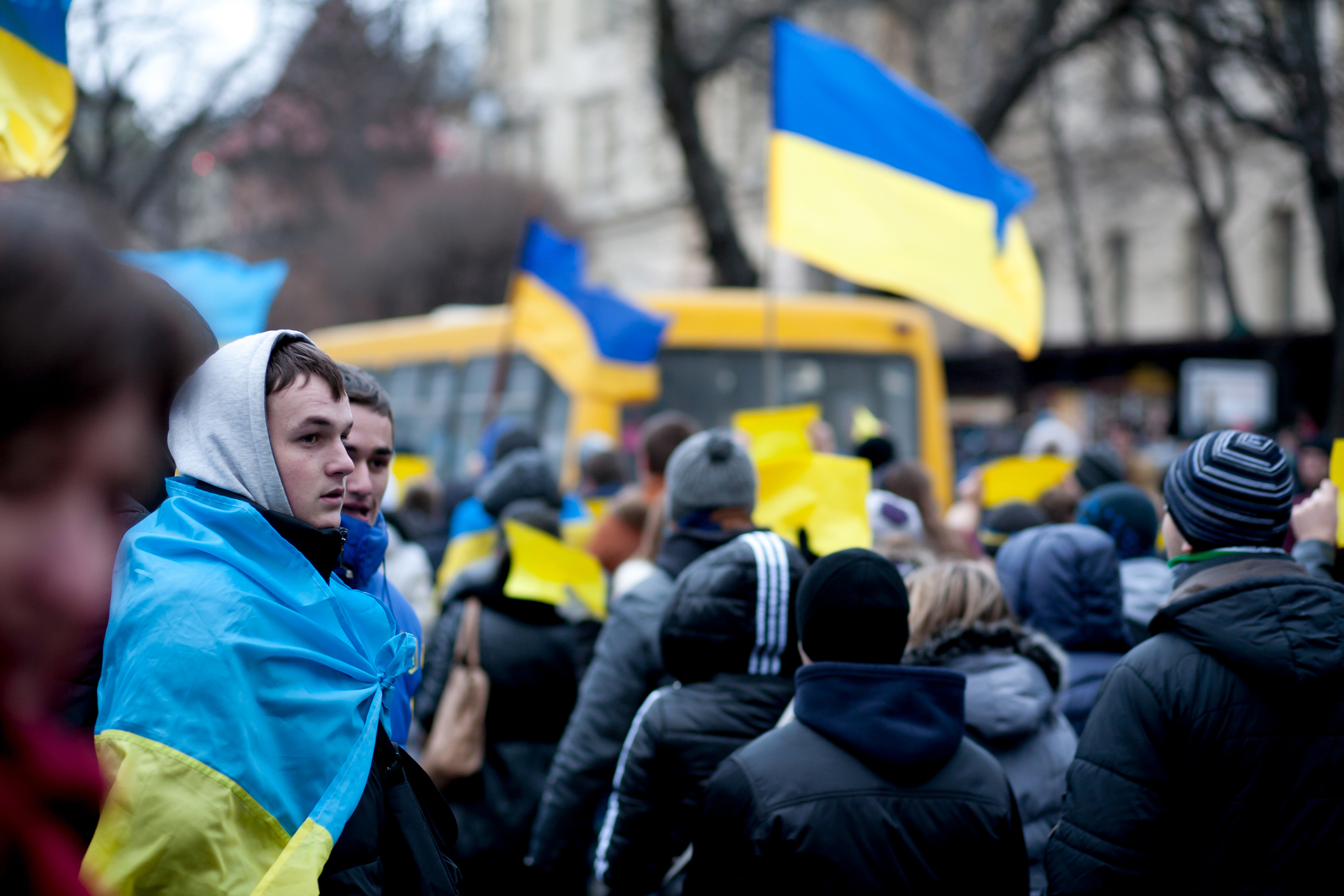
Lviv, Ukraine. November 28, 2013. Ukrainian students attending pro EU manifestation in the city center. Getty/Kentarcajuan
We are over a year into the Russian invasion of Ukraine, which saw an exodus of hundreds of thousands of Ukrainians seeking safety outside of their country. As part of the U.S. response the Biden Administration launched Uniting for Ukraine, which has admitted nearly 125,000 through humanitarian parole. Many Ukrainians are starting to worry what will happen if their parole runs out and nothing replaces it. In a recent interview with Roll Call, David Spicer, senior policy advisor of USCCB/MRS spoke to this possibility that a more permanent solution might be necessary: “The longer the war is ongoing in Ukraine, and the less likely people are to return to Ukraine, the greater there’s going to be a need for that ability to adjust status and fully integrate within American communities. That’s always something that’s at the forefront of our thoughts.”
In other news, the Biden Administration is set to end Title 42 on May 11, which has been used since the start of the COVID pandemic more than 2.7 million times to expel migrants. Although originally established as a health measure to prevent the spread of contagious diseases – in the most recent iteration, COVID-19 – critics of the policy have argued that it has morphed into little more than an immigration enforcement mechanism. Kevin Appleby, interim Executive Director of the Center for Migration Studies, noted that the end of the program was a positive step forward, but lamented that Congress’ failure to deal with the immigration issue has left it to “the executive branch to come up with these responses, when Congress should be working with the administration to pass legislation to overhaul our immigration laws.”
At a recent event at Georgetown University, Bishop Mark J. Seitz, Chairman of the USCCB’s Committee on Migration and Bishop of El Paso, TX, noted that how local communities along the border respond to the influx of migrants functions as a kind of bellwhether “about the health of our communities, about the health of our country, about our health as people of faith,” and that “Immigration will not be fixed by simply stopping people or sending them back. Immigration issues will be allowed to become a more orderly, normal human process if we deal with the root causes of them in the sending countries.”
Other News items of note:
Rebecca O’Connor, “Inland Coalition for Immigrant Justice works to build stronger community,” The Press Enterprise, April 22, 2023
This story highlights the founding of the Inland Coalition for Immigrant Justice, which was founded in 2008 by Roman Catholic Auxiliary Bishop Rutilio del Riego.
